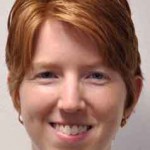Nearly 20 million women and 10 million men will suffer from a “clinically significant” eating disorder at some point in their lives, according to the National Eating Disorder Association.
Forty-two percent of girls in first to third grade want to be thinner. Forty-six percent of nine to 11-year-old said they “sometimes” or “very often” diet.
University Health & Counseling Services is preparing for National Eating Disorder Awareness Week to help bring awareness to this major health concern.
This year’s theme for NEDAW is “Everybody knows somebody.”

“We want everybody to realize you can’t tell just by looking at someone if they have an eating disorder, they come in all shapes and sizes,” UHCS Psychiatrist Jill Mallin said. “We want to help people recognize signs and symptoms and know what to do if you have a friend who has an eating disorder.”
NEDAW will occur on campus from Feb. 25 to March 1. Events include a documentary called “Missrepresentation” at 7 p.m. on Feb. 25 in Summers Auditorium, a live Twitter chat from 1 to 3 p.m. on Feb. 26 and a presentation from Dietician Karen Woodland at 7 p.m. on Feb. 27 in the Univsersity Center Room 259B.
“It’s a designated week for people all across the nation, regardless of their affiliation with a university, hospital or church, to do anything that promotes awareness that eating disorders do exist and that they are very dangerous,” Mallin said.
Recent trends in eating disorders have contributed to this year’s theme. Mallin said eating disorders have spread significantly to every race, and for the first time in history, the number of men seeking treatment is growing faster than women.
Holli Zambrowicz, a graduate assistant working at UHCS, said media contributes to both male and female eating disorders more so than in the past.
“The ideals of beauty have gotten stricter,” Zambrowicz said. “We don’t really see a lot of variety in the media, and when you’re constantly seeing the same messages, that becomes the norm. It can affect how you feel about yourself and what you think you should be.”

Zambrowicz said the goal of NEDAW on campus is to raise awareness for eating disorders. The event is aimed at informing people who may have an eating disorder and for people who may have a friend who has an eating disorder and what to do in that situation.
“Deep down someone may know there’s a problem but they don’t want to acknowledge it,” Zambrowicz said. “It may take someone else to say something before they will actually admit it.”
Mallin and other counselors at UHCS offer free counseling services to students. The process of treating someone with an eating disorder is for one of the counselors to evaluate a client, send them to health services to make sure the disorder has not harmed them physically, then they are sent to see a nutritionist on campus and finally they are prescribed any medication needed.
If the medication is not working or there have not been any improvements with counseling services, a client may be sent to an off-campus facility for more intensive care.
“It’s a very gentle process,” Zambrowicz said. “You can bring an eating disorder to someone’s attention, but that doesn’t mean they want to do anything about it.”

